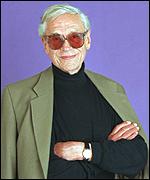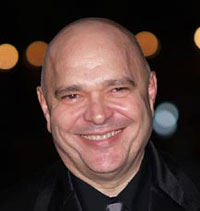 Paul Scofield’s passing today shows the depth of Britain’s classical acting squad: he’s perhaps one of the top actors of the 20th century, with enough gravitas, impeccable diction and nuance to rank with Sirs Gielgud, Olivier, or Richardson. Yet he has none of their household recognition—unless you’re a faith-conscious person, in which case Scofield is as famous and beloved as the man he played in movie of Robert Bolt’s “A Man for All Seasons“: Saint Thomas More, the 16th century philosopher, lawyer and Lord Chancellor of England under King Henry VIII.
Paul Scofield’s passing today shows the depth of Britain’s classical acting squad: he’s perhaps one of the top actors of the 20th century, with enough gravitas, impeccable diction and nuance to rank with Sirs Gielgud, Olivier, or Richardson. Yet he has none of their household recognition—unless you’re a faith-conscious person, in which case Scofield is as famous and beloved as the man he played in movie of Robert Bolt’s “A Man for All Seasons“: Saint Thomas More, the 16th century philosopher, lawyer and Lord Chancellor of England under King Henry VIII.
A popular and influential public figure in his time, More defied Henry’s reformation of the Catholic Church in England, refusing to take a vow of allegiance to Henry as the head of the new Church of England (today known as Anglican in most of the world; Episcopalian here in the U.S.). Tried for treason, More was beheaded in 1535 after a calmly courageous period in jail that stands as an example of a principled death.
Bolt’s play captures More’s reputed kindness, intelligence and humor. More than a hagiography of More, it brings to sharp focus the uneasy equilibrium between principle and law in a modern bureaucratic state. Scofield’s performance crystallized the pain of the modern man split between what he owes his soul and what he owes the world, and it won the actor (and the film) an Oscar in 1967.


